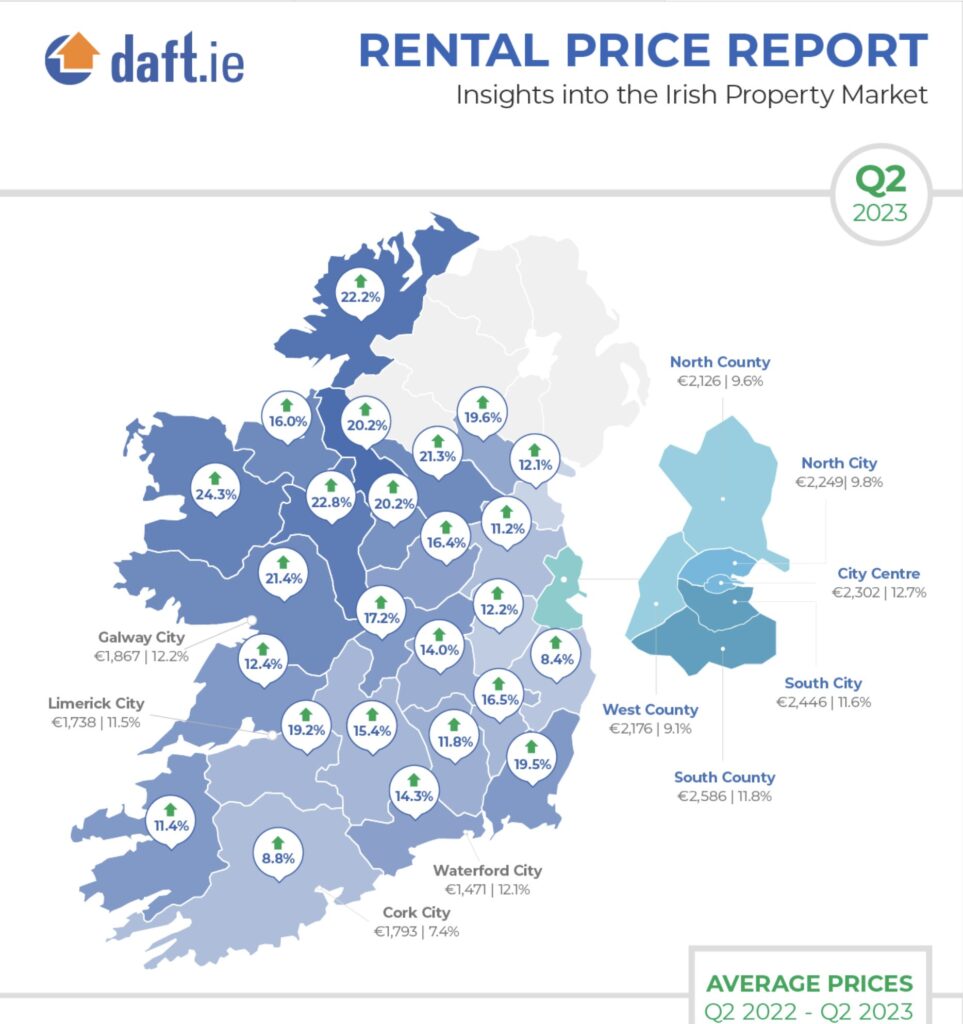Rent prices in Donegal have jumped by a further 12% since the start of 2023.
The average cost of renting a home in Donegal is now €1,077 – 22% higher than this time last year.
The latest Daft.ie report shows little change in supply and demand for rental properties nationwide.
There were almost 170 homes listed for rent in Connacht-Ulster on August 1st. The figure is up over 50% on the same date a year ago but still just one quarter of the 2015-2019 average.
Donegal is the second least-expensive place to rent in Ireland, after Leitrim.
Deputy Thomas Pringle commented on the report and said: “Desperate families are at breaking point, battling to keep a roof overhead. Facing overcrowding or being driven from their beloved #Donegal. The deep scars of MICA & AirBnb’s rise amplify our housing crisis.”

Ronan Lyons, author of the Daft report, said there are diverging trends between the cities and rural areas such as Connacht-Ulster.
He said: “While layoffs from some of the biggest employers in Dublin (and Cork) may be driving some of the diverging trends, unemployment ‐ which is a far more accurate gauge of overall labour market conditions ‐ is at an all-time low. In June 2023, just 3.8% of those aged 15-74 were unemployed ‐ pipping the previous low of 3.9% set in late 2000/early 2001.
“And it’s not just that numbers in work are increasing but pay is not. Weekly earnings across all sectors were up 4.3% in early 2023 compared to a year earlier ‐ a faster rate of income growth than in the previous 12 months (2.9%).
“So if employment and earnings are growing, why is rent growth in Dublin so different to Donegal? Jobs and wages relate to the demand side of the economy but it is likely that the difference between Dublin and most of the rest of the country is down to housing supply, not housing demand.”
Lyons adds that costs are prohibitively high for standard private rental accommodation to be built anywhere outside of Dublin for the foreseeable future.
“For that reason, policy has begun to intervene and it is likely that such interventions will be needed for years to come ‐ not least as the fruits of extra supply are still some years off.”








